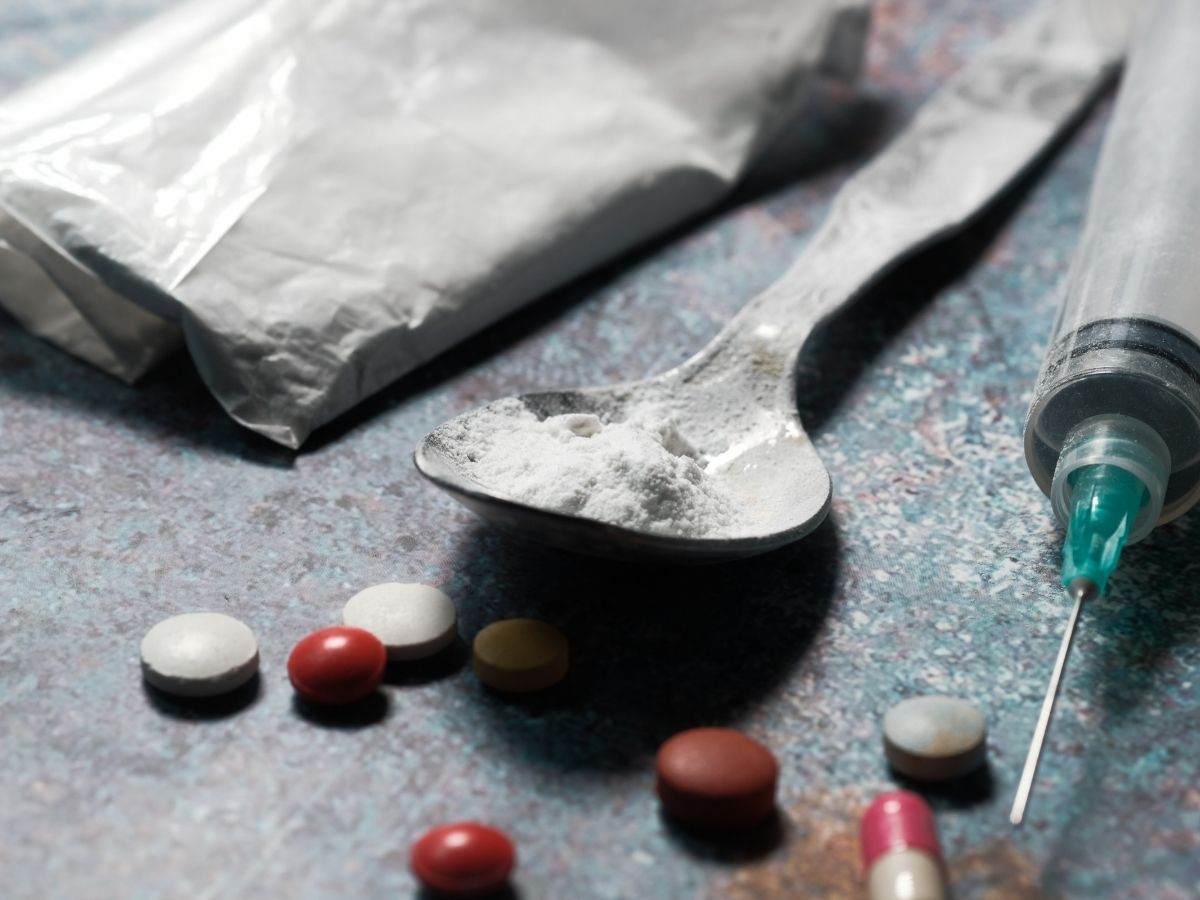What Is Fentanyl Used For?
Many experts describe what’s occurring to drive the drug overdose scourge as the contamination of abused drugs. The availability of fentanyl, its potent effects, and how cheap it is to cut heroin, meth, cocaine, and possibly other drugs are likely the big culprits. We now know that fentanyl and the contamination it brings to other addictive drugs are made, sold, and shipped to Americans from China. What’s more dangerous is that China has seemingly allowed the proliferation of fentanyl. This is another reason experts do not see any possibility of radical change in fentanyl addiction and overdose deaths for the rest of the current year. [1]
Fentanyl Street Names
- Apace
- China Girl
- China Town
- China White
- Dance Fever
- Goodfellas
- Great Bear
- He-Man
- Poison and Tango & Cashc
What is fentanyl used for? The illegally used fentanyl most often linked with recent overdoses is manufactured in labs. This synthetic fentanyl is sold unlawfully as a powder, dropped onto blotter paper, put in eye droppers and nasal sprays, or made into pills that look like other prescription opioids.
Some drug dealers combine fentanyl with other drugs, such as heroin drug, cocaine drug, methamphetamine drug, and MDMA club drugs. This is because it takes very little to produce a high with fentanyl, making it a cheaper option. This is very risky when people taking drugs don’t realize they might contain fentanyl as a cheap but dangerous additive. They might be taking more powerful opioids than their bodies are used to and can be more likely to overdose. [2]

Fentanyl Side Effects
What is fentanyl? Fentanyl is a potent synthetic opioid similar to morphine but is 50 to 100 times more powerful. It is a prescription drug that is also made and used illegally. Like morphine, it is a medication typically used to treat patients with severe pain, particularly after surgery. However, it is also sometimes used to treat patients with chronic pain who are physically tolerant to other opioids. Tolerance happens when you need a higher and/or more frequent drug to get the desired effects.
Synthetic opioids, including fentanyl, are now the most prevalent drugs involved in drug overdose deaths in the United States. In 2017, 59.8 percent of opioid-related deaths involved fentanyl compared to 14.3 percent in 2010. [3] U.S. drug overdose deaths rose nearly 30% in 2020, driven by synthetic opioids. Again, it’s about isolation, interruption in life, and maybe worsening of mental disorders due to the spread of (primarily illicitly produced) fentanyl; along with lockdowns, job losses, and stress from the Covid-19 pandemic. Fentanyl is 50 times more potent than heroin, and it is now often mixed into other widely used illicit drugs, usually when the user is careless.

Fentanyl Effects
What is the fentanyl effect? Like heroin, morphine, and other opioid drugs, fentanyl works by binding to the body’s opioid receptors, which are found in areas of the brain that control pain and emotions. After taking opioids many times, the brain adapts to the drug, reducing its sensitivity, making it hard to feel pleasure from anything besides the drug. When people become addicted, drug-seeking and drug abuse take over their lives. [4]
Drugs that cause comparable effects include other opioids such as morphine, hydrocodone, oxycodone, hydromorphone, methadone, and heroin. Fentanyl, like other commonly used opioid analgesics (e.g., morphine), produces effects [5] such as:
- Relaxation
- Euphoria
- Pain Relief
- Sedation
- Confusion
- Drowsiness
- Dizziness
- Nausea
- Vomiting
- Urinary Retention
- Pupillary Constriction
- Respiratory Depression
Overdose On Fentanyl
A person can overdose on fentanyl. An overdose happens when a drug produces severe adverse effects and life-threatening symptoms. When people overdose on fentanyl, their breathing can slow or stop. This can reduce the amount of oxygen that reaches the brain. A condition called hypoxia. Hypoxia can lead to a coma and permanent brain damage, and even death.
Overdose May Result In:
- Stupor
- Changes in Pupillary Size
- Cold and Clammy Skin
- Cyanosis
- Coma
- Respiratory Failure leading to death
Thus, a triad of symptoms such as coma, pinpoint pupils, and respiratory depression strongly suggests opioid poisoning.
Fentanyl Withdrawal
When the use of opioid drugs, the addiction withdrawals begin. They’ll begin to have cravings that endure even with the knowledge of the adverse effects. Medical detox is critical in ensuring the withdrawal is manageable and reaches completion as well as that it does not become dangerous and life-threatening. Fentanyl addiction needs detoxification the most.
Once a person develops a dependency for fentanyl by continually increasing doses in order to achieve the same level of “high”, they are considered addicted to the drug. Addiction, especially when it comes to synthetic opioids such as fentanyl, is extremely difficult to treat as patients will experience symptoms of withdrawal in order to discontinue the cycle of drug abuse. Patients can experience these symptoms as soon as a few hours after using fentanyl depending on the amount of time they’ve been using, the frequency and dosage amount, and the weight of the individual. Signs of fentanyl withdrawal include:
- Muscle and bone pain
- Sleep problems
- Diarrhea and vomiting
- Cold flashes with goose bumps
- Uncontrollable leg movements
- Severe cravings
Fentanyl Addiction Treatment Options
Fentanyl Overdose Death Avoidance With The Help Of Naloxone “Narcan”
Naloxone is a medication approved by the Food and Drug Administration (FDA) meant to reverse opioid overdose quickly. In addition, it is an opioid antagonist—meaning that it binds to opioid receptors and can change and block the effects of other opioids, such as heroin, morphine, and oxycodone. When a user signifies an opioid or fentanyl overdose, naloxone is a temporary treatment, and its effects do not last long. Therefore, it is crucial to obtain medical intervention as soon as possible after administering/receiving naloxone.
As mentioned above, many drug dealers mix the cheaper fentanyl with other drugs like heroin, cocaine, MDMA, and methamphetamine to increase their profits, making it often tough to know which drug is causing the overdose. Naloxone is a medication that can treat a fentanyl overdose when given right away. But fentanyl is more potent than other opioid drugs like morphine and might need multiple doses of naloxone.
Because of this, if you suspect someone has overdosed, an essential step to take is to call 911 so they can receive immediate medical attention. Once medical personnel arrives, they will administer naloxone if they suspect an opioid drug is involved. Naloxone is available as an injectable (needle) solution and nasal sprays (NARCAN® and KLOXXADO®).
People given naloxone should be observed for another two hours after the last dose of naloxone is given to make sure breathing does not slow or stop. Some states have passed laws that allow pharmacists to dispense naloxone without a personal prescription. [6]

Fentanyl Addiction Treatment And Detox At We Level Up TX
Like other opioid addictions, medication with behavioral therapies is efficient in treating people with fentanyl addiction. [7]
- Medications: Buprenorphine and methadone work by binding to the same opioid receptors in the brain as fentanyl, decreasing cravings and withdrawal symptoms. Another medication, Naltrexone, blocks opioid receptors and prevents fentanyl from having an effect. People can review treatment options with their health provider.
- Counseling: Behavioral therapies for addiction to opioids like fentanyl can improve people’s attitudes and behaviors associated with drug use, develop healthy life skills, and help them stick with their medication. Some examples include:
- Cognitive Behavioral Therapy: This helps adjust the client’s drug use expectations and behaviors and efficiently handle triggers and stress
- Contingency Management: This uses a voucher-based system giving clients “points” based on negative drug tests. They can use the points to earn items that promote healthy living
- Motivational Interviewing: This is a client-centered counseling style that addresses a person’s mixed feelings to change
These behavioral treatment approaches have proven useful, mainly when used along with medications.
Clearing drugs from the body and overcoming withdrawal symptoms is the goal of detox, which is the first step of treatment for fentanyl addiction. You need to detox to obtain recovery in a safe and medically supervised setting. We Level Up TX treatment center medically assist clients in clearing their systems of addictive substances.
For anyone who suffers from fentanyl addiction, just the thought of having to stop using can cause severe mental distress. But, with the help of a medical detox center, the medical detox process is managed. In addition, a comprehensive team prescribing medications can alleviate your withdrawal pains while monitoring your health 24 hours. Thus, assuring both your safety and comfort.
After the detox, the residential care program will slowly and effectively introduce the individual into an atmosphere of therapeutic growth. Marked by Master’s level therapists, clinicians, group counselors, psychiatrists, and a community of like-minded individuals with the same aim: to attain sobriety and live a great life.
If you or a loved one is struggling with what is fentanyl addiction, you may reach out to us. We Level Up TX’s counselors are always ready to answer any of your possible questions.
Sources:
[1] WE LEVEL UP IS REMAINING OPEN DURING COVID-19 – https://welevelup.com/treatment/news/open-during-covid-19/
[2,3,4,6] Fentanyl DrugFacts – National Institute On Drug Abuse
[5] Fentanyl – United States Drug Enforcement Administration
[7] Fentanyl Addiction – We Level Up


